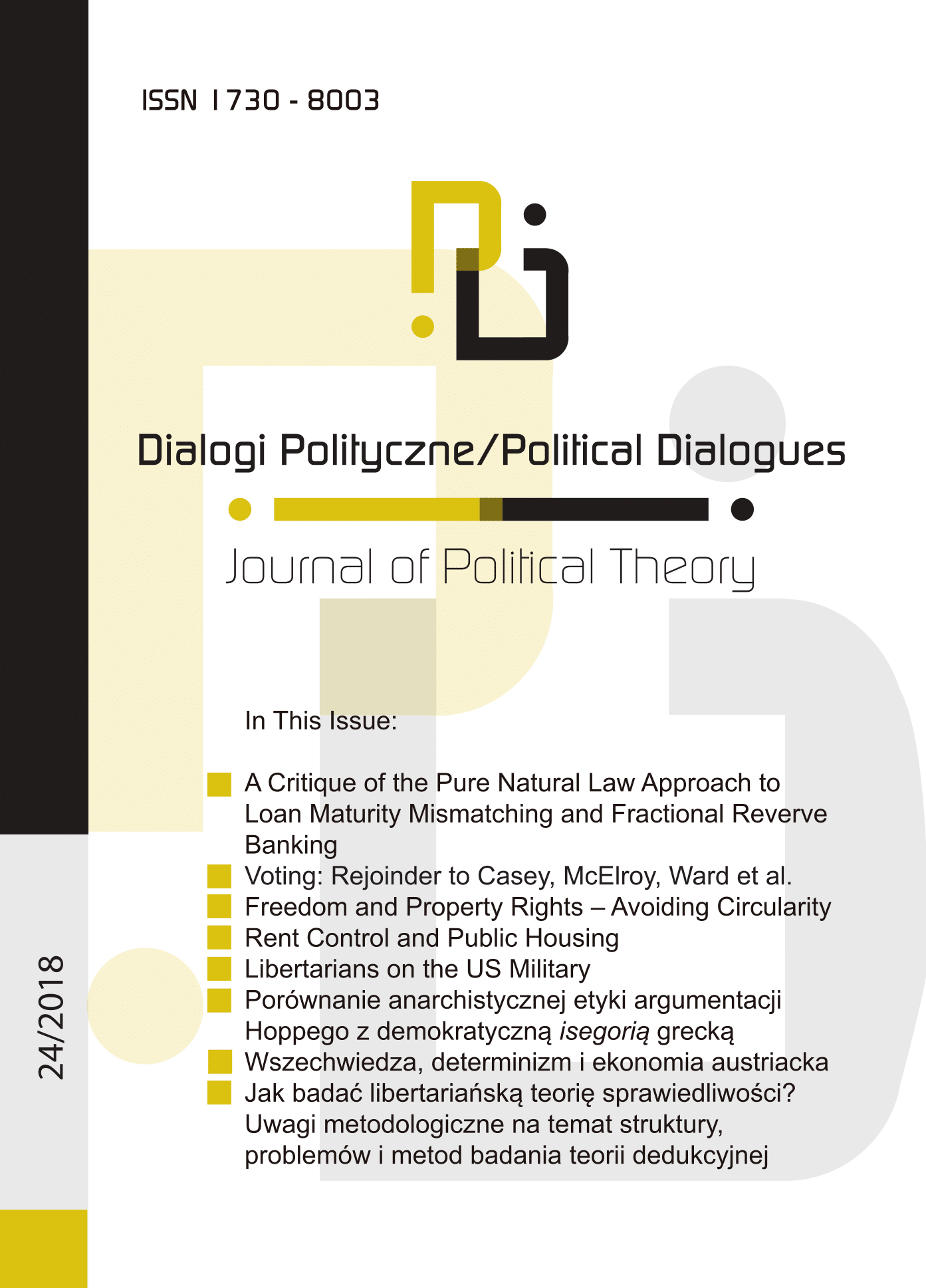Freedom and Property Rights – Avoiding Circularity
DOI:
https://doi.org/10.12775/DP.2018.003Słowa kluczowe:
freedom, libertarianism, property rights, circularityAbstrakt
This paper argues that libertarians employ the notion of freedom inconsistently. They either resort to a descriptive notion of freedom of some sort in saying that any infringement on the owner’s property rights would diminish her freedom or they use a moralized definition of freedom positing that the exclusion (be it factual or normative) of non-owners from owners’ properties cannot contribute to any unfreedoms on the part of the former since they are merely prevented from doing something they do not have a right to do in the first place. On the positive note, I will suggest a purely descriptive (and therefore neutral) notion of freedom that would allow for making synthetic (as opposed to analytical) statements concerning freedoms (or unfreedoms for that matter) and property rights. Finally, I will argue why in a free society necessarily emergent unfreedoms are relatively unimportant compared to unfreedoms resultant in any other regime.
Bibliografia
Cohen, G. A. (1995). Self-ownership, Freedom, and Equality. Cambridge: Cambridge University Press.
Van Dun, F. (2009). “Freedom and Property, Where They Conflict,” Mises Daily, October, 29.
Kramer, M. (2003). The Quality of Freedom. Oxford: Oxford University Press.
Nozick, R. (1974). Anarchy, State and Utopia. Basic Books. New York.
Rothbard, M. N. (2006). For a New Liberty, 2nd ed. Auburn: Ludwig von Mises Institute.
Steiner, H. (1983). “How Free: Computing Personal Liberty.” A. Phillips-Griffiths (ed.) Of Liberty, Royal Institute of Philosophy Lecture Series: 15 Supplement to Philosophy. Cambridge: Cambridge University Press.
Pobrania
Opublikowane
Jak cytować
Numer
Dział
Statystyki
Liczba wyświetleń i pobrań: 355
Liczba cytowań: 0



